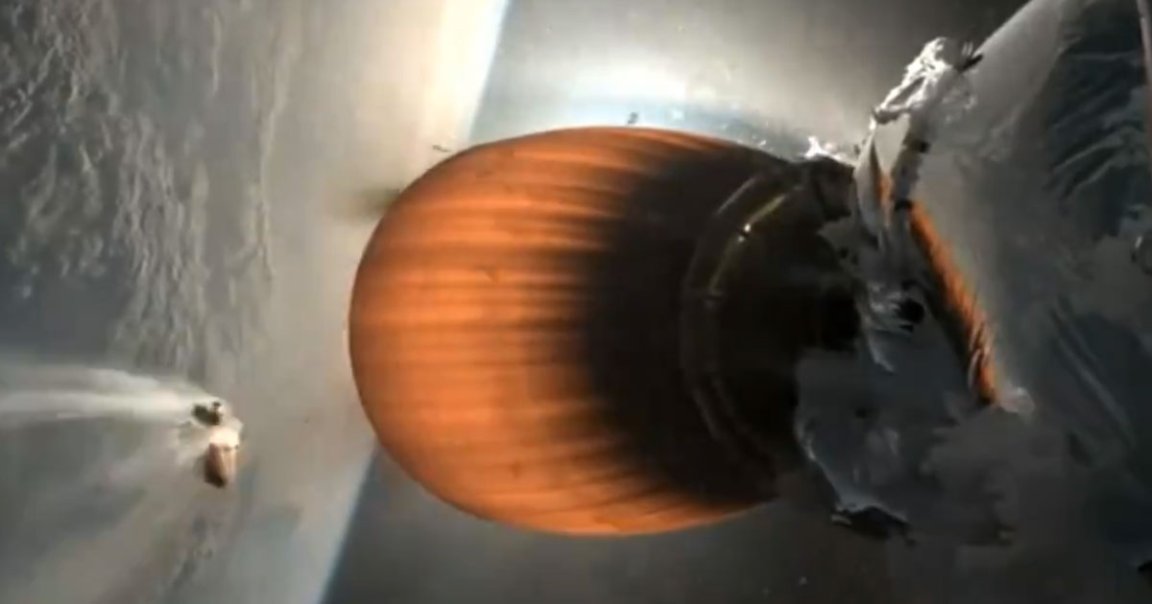
Rapid Disassembly
The second stage of a SpaceX Falcon 9 rocket exploded while trying to raise its orbit to release a batch of Starlink internet satellites.
It’s an extremely rare event, given the reusable rocket’s groundbreaking reliability. This week’s launch was the 69th Falcon 9 flight this year and the 354th since 2010. Before Thursday’s failure, SpaceX had launched a whopping 344 successful flights in a row.
According to an update by SpaceX CEO Elon Musk, the rocket experienced a “RUD,” or “rapid unscheduled disassembly,” a tongue-in-cheek description of a rocket exploding mid-flight.
“Upper stage restart to raise perigee resulted in an engine RUD for reasons currently unknown,” he tweeted early Friday morning. “Team is reviewing data tonight to understand root cause.”
As for the batch of Starlink satellites, Musk said that they “were deployed, but the perigee may be too low for them to raise orbit.”
Getting Iced
Footage shows the rocket’s upper stage becoming covered in an unusual amount of ice particles after firing its Merlin engine for a second time.
As for the state of the Starlink satellites, SpaceX has since announced that it’d made contact with five out of 20 of them.
“During tonight’s Falcon 9 launch of Starlink, the second stage engine did not complete its second burn,” the company tweeted. “As a result, the Starlink satellites were deployed into a lower than intended orbit.”
According to Musk, the “satellite thrusters need to raise orbit faster than atmospheric drag pulls them down or they burn up.”
Meanwhile, SpaceX is trying to make the most out of the situation and is attempting to update “satellite software to run the ion thrusters at their equivalent of warp 9,” according to Musk. “Unlike a ‘Star Trek’ episode, this will probably not work, but it’s worth a shot.”
It remains to be seen whether the rocket failure will have any knock-on effects for its Polaris Dawn mission, which will involve astronaut Jareed Isaacman performing the first-ever, fully private spacewalk outside of an orbiting Crew Dragon spacecraft.
The mission is slated for July 31, but given the latest news, that date may end up being pushed back.
More on SpaceX: Elon Musk Reportedly Offered SpaceX Employees Sperm to Seed Mars Colony